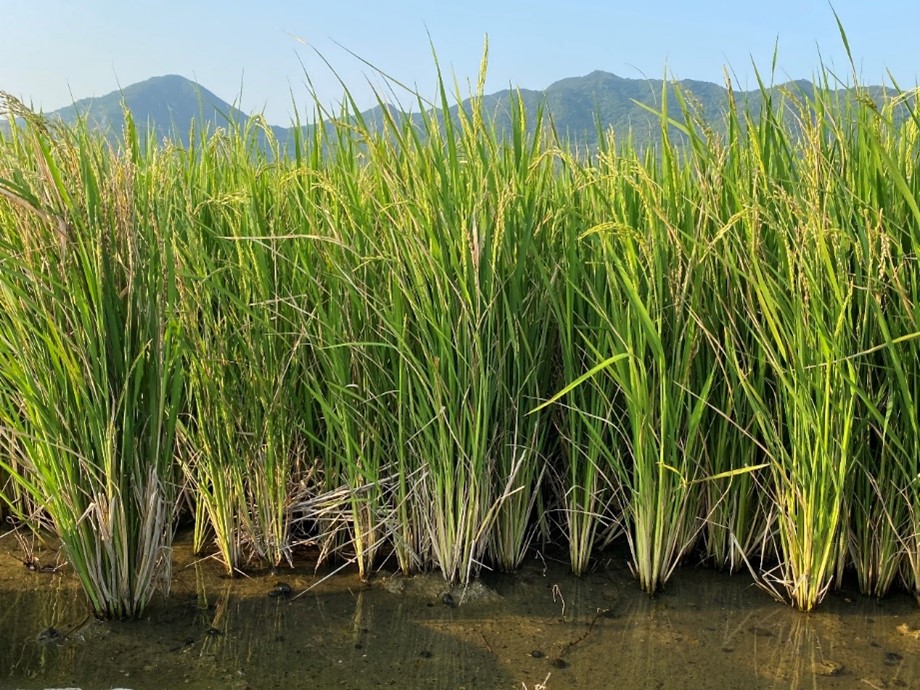BGI Perspectives

China, 17 October 2022,-/African Media Agency (AMA)/- An estimated 670 million people are projected to be undernourished in 2030, as noted in FAO’s The State of Food Security and Nutrition in the World 2022 report. Conflict, COVID-19, climate extremes and economic shocks are listed as the key factors contributing to food insecurity and malnutrition.
Against this backdrop, what are international scientists doing? On the occasion of World Food Day, Dr. Liu Huan, the Chief Scientist of BGI Research Agriculture and Head of BGI Bioverse, notes it is crucial to enhance yields of key crops such as rice. Dr. Liu makes three key points:
– Compared to cultivated rice, perennial rice can reduce production costs by over 50%
– Perennial rice incorporates African wild rice genes, which enhances its stress tolerance
– The reach for perennial rice planting includes 18 countries such as Uganda and Ethiopia
Perennial rice’s hidden secrets
Do you know that wild rice species – similar to ginger – develop rhizomes, modified stems that grow underground horizontally, as a means of vegetative reproduction? However, cultivated rice do not possess rhizomes. This means cultivated rice must be planted on a per-season basis. Whereas perennial rice can be harvested over many years since it incorporates wild rice genes and its rhizomes for reproduction.
Perennial rice: In search of a greener and more efficient crop
Traditional rice cultivation consists of six processes: buy seeds, raise seedlings, ploughing, transplanting, field management and harvesting. With perennial rice, the farmers skip the first four stages and concentrate their efforts on field management and harvesting. Growing perennial rice not only greatly reduces production costs, but also eliminates the need to plough the field for years, reducing labor, fertilizer and pesticide inputs and enhancing the natural properties of the soil.
Compared to cultivated rice, perennial rice can reduce production input costs by more than 50%. Farmers are potentially looking at US$11.40 – 13.70 savings per acre based on labor costs in Yunnan, China. China has 65.9 million acres of land dedicated to rice farming. Therefore, the theoretical social and economic value of these savings with two crops per year is estimated at US$1.5 billion.
Perennial rice also has higher yield and quality. In terms of yield, in Yunnan, the yield reaches 164 kilograms, compared to China’s average of 75 kilograms per acre.
Perennial rice has relatively wide regional adaptability. Perennial rice has been planted at 117 locations within China, covering 13 major rice-growing provinces while covering 17 countries internationally, including Uganda, Ethiopia, Laos, Myanmar and Bangladesh, showing its potential for development across various climates.
Perennial rice’s African “father” gene
BGI’s perennial rice is well-placed to adapt to African conditions as it incorporates Oryza longistaminata wild rice genes from Africa, which enhances stress tolerance. The Academy of Agricultural Sciences in Uganda have collaborated with BGI to conduct research trials. This trial achieved a single-season yield of nearly 82 kilograms per acre.
Perennial rice can produce high yields with less intensive field management. Further adoption of perennial rice is potentially of great importance to the food supply of African countries. Rice is the second most important source of calories in Africa with demand growing at more than six percent per year.
Dr. Liu notes that BGI is ready to share technology and to nurture a team of modern technological agricultural talent in Africa. Working with local partners, BGI looks forward to developing perennial rice varieties that are more suited for African cultivation and more disease-resistant, to further raise farmers’ incomes.
Check out Dr. Liu Huan’s video
Distributed by African Media Agency (AMA) on behalf of BGI Genomics.
About BGI Genomics
BGI Genomics, headquartered in Shenzhen China, is the world’s leading integrated solutions provider of precision medicine. In July of 2017, as a subsidiary of BGI Group, BGI Genomics (300676.SZ) was officially listed on the Shenzhen Stock Exchange. BGI has topped the Asia Pacific and China life science corporate institution ranking table for the seventh year running, released in the 2022 Nature Index Annual Tables.
Media Contact:
Junxun Tan
BGI Genomics
The post <strong>Perennial rice incorporates African wild rice genes and halves production cost</strong> appeared first on African Media Agency.